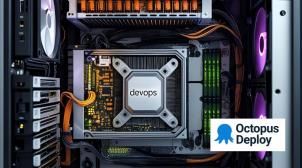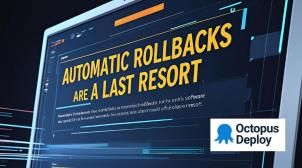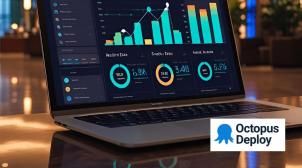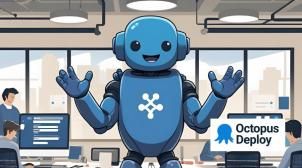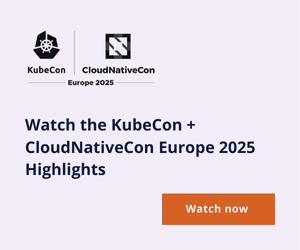-
Troubleshooting Kubernetes with AI: Using the K8s MCP server
Unlock AI-powered Kubernetes troubleshooting! Discover the Model Context Protocol (MCP) and how it standardizes AI agent interactions with Kubernetes tools like kubectl, Helm, and ArgoCD. Learn how to integrate K8s MCP Server with agentic frameworks like PydanticAI for seamless, context-rich cluster management.
-
DevOps and Platform Engineering
DevOps brought developers and operations together to improve software delivery speed and reliability. Now, Platform Engineering builds on that foundation—enabling development teams with self-service tools, golden pathways, and smoother workflows. This article explores how Platform Engineering complements DevOps, supports scale without sacrificing autonomy, and helps high-performing teams reduce complexity while boosting productivity.
-
Why Policy as Code is a Game Changer for Platform Engineer
Platform engineers, revolutionize your game! Discover why Policy as Code (PaC) is the ultimate game-changer for building scalable, secure, and efficient internal developer platforms. Learn how PaC empowers developers with faster feedback, ensures secure self-service, automates governance, and fortifies your security posture effortlessly.
-
Automatic Rollbacks are a Last Resort
Automatic rollbacks might sound like a safe fallback for failed deployments, but modern software delivery tells a different story. This article explores why human-driven resilience, Continuous Delivery, and progressive delivery strategies are far more effective. Learn how deploying in small batches, using canary or blue/green strategies, and leveraging feature flags can help you respond smarter—and faster—when things go wrong.
-
10 Reasons Why Kubernetes Users Choose Kyverno Over OPA/Gatekeeper
Tired of complex Kubernetes policy enforcement? Discover 10 compelling reasons why Kyverno, the Kubernetes-native alternative, is outperforming OPA/Gatekeeper. Learn how its simplified YAML policies, powerful mutation, and built-in generation capabilities empower DevOps for effortless security and compliance.
-
Beyond skeleton pipelines: who owns your software pipeline?
Are your "skeleton pipelines" secretly killing your velocity? Discover the hidden cost of an "ownership vacuum" in software delivery, wasting precious dev hours. Learn why treating pipelines as a product, not an afterthought, is crucial for improving efficiency, reducing technical debt, and making every deployment a smooth success.
-
Guestline Saves 2,000 Hours Per Release Using Tenants in Octopus Cloud
Guestline transformed a 20-year-old manual deployment process for its EPOS software by adopting Octopus Deploy. With Octopus Cloud and tenanted deployments, Guestline automated updates to over 800 hotel customers, saving thousands of hours and significantly improving consistency and speed. The team now delivers updates twice a month, enhancing customer experience and enabling faster cloud adoption across its global footprint.
-
Recruit Wizard scaled and moved to daily deployments with Octopus Cloud
Recruit Wizard transformed its software delivery by adopting Octopus Deploy for full deployment automation across Kubernetes and virtual machines. Moving from quarterly to daily deployments, the team now uses Config as Code and Runbooks to streamline releases, reduce errors, and empower non-engineering staff to run operational tasks independently. With Octopus Cloud, they’ve modernized and scaled their deployments while staying focused on growth and innovation in recruitment software.
-
The ten pillars of pragmatic deployments
Unlock the secrets to flawless software delivery! Explore the "10 Pillars of Pragmatic Deployments" that ensure repeatability, visibility, and auditability. Learn how to master rolling forward, standardize processes, and coordinate releases for robust, high-performing software pipelines.
-
Stack Overflow Uses Config as Code in Octopus for its Enterprise Solution
Stack Overflow adopted Octopus Deploy to streamline and scale its enterprise software delivery using tenanted deployments, automation, and Configuration as Code. By integrating application code, build, and deployment processes in a single GitHub repo, the team improved CI/CD efficiency, enabled better collaboration through pull requests, and reduced deployment times across multiple customers. Octopus's Azure support, API flexibility, and excellent customer service empowered Stack Overflow to standardize and mature its DevOps practices.
-
Five Reasons Standalone Vulnerability Scanning Isn’t Enough in 2025
Vulnerability scanning alone doesn’t cut it anymore. While it’s long been a core security practice, scanning tools can’t tell you which vulnerabilities are exploitable, how attackers would target them, or which ones pose real risk. This article explores the limitations of vulnerability scanning, the shortfalls of traditional vulnerability management, and why organizations must adopt a risk-based, context-driven approach to application security. Learn how to prioritize based on exploitability, integrate security across the SDLC, and move toward continuous, intelligent threat detection.
-
5 Smart API Gateway Strategies to Unlock Developer Productivity
Discover how leading platform teams are redefining the developer experience through modern API gateway practices. This article explores five core strategies—ranging from zero-friction onboarding to AI API governance—that empower developers, streamline operations, and reinforce security and observability. Learn how tools like Traefik Labs are helping organizations transform their API gateways into powerful productivity engines, all while maintaining control, resilience, and scalability in today’s cloud-native and AI-driven landscape.
Filter & Sort






